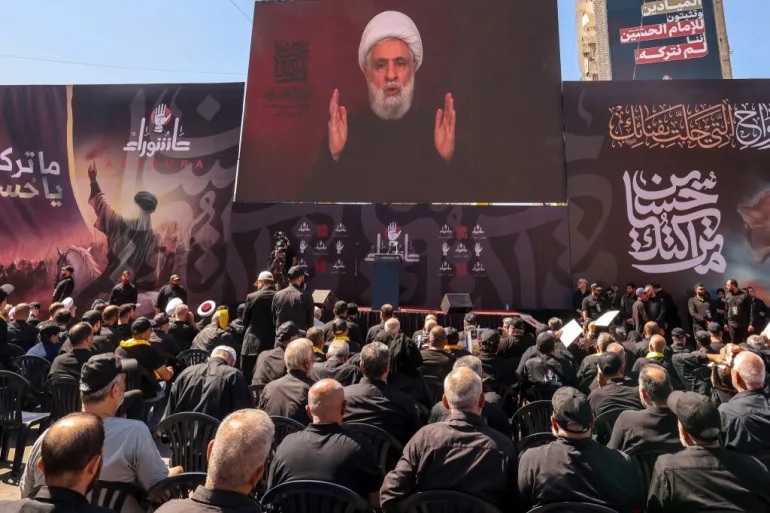Hezbollah ’s deputy leader, Naim Qassem, has defiantly rejected demands for the group’s disarmament, framing them as an Israeli-backed plot.
Speaking on Wednesday during a memorial for slain commander Fuad Shukr, Qassem argued that calls to surrender weapons serve only Israel’s interests.
He specifically accused U.S. envoy Tom Barrack of using threats to pressure Lebanon, claiming such efforts aim to weaken resistance against Israel.
The killing of Shukr in October 2023 marked a major escalation in cross-border clashes triggered by the Gaza war.
Following weeks of fighting, a U.S.-brokered ceasefire took effect on November 27.
Under the deal, Hezbollah withdrew fighters north of the Litani River, leaving only the Lebanese army and UN forces in the south.
However, Qassem stressed that the truce applies only to that zone, insisting disarmament talks remain an internal Lebanese issue.
Washington has ramped up pressure on Lebanon to dismantle Hezbollah’s military wing, with Barrack holding repeated talks in Beirut.
Meanwhile, Israel continues airstrikes on Hezbollah targets, citing the group’s armed presence as justification.
Qassem condemned these attacks, urging Lebanese leaders to focus on stopping Israeli aggression rather than disarming Hezbollah.
Lebanese officials, speaking anonymously, admit facing intense international demands to formally commit to disarming Hezbollah.
However, Beirut insists Israel must first fully withdraw from occupied southern areas—a condition the U.S. reportedly rejects.
This deadlock complicates efforts to stabilize the region, with Hezbollah refusing to negotiate under ongoing strikes.
Prime Minister Nawaf Salam has scheduled a cabinet meeting next week to discuss sovereignty and the ceasefire’s implementation.
Key topics include state control over all territories and Barrack’s proposals.
Hezbollah maintains that any disarmament talks require a complete Israeli withdrawal and cessation of hostilities.
The standoff highlights Lebanon’s precarious position amid competing pressures.
While Western and regional actors push for Hezbollah’s demilitarization, the group frames resistance as essential to countering Israeli threats.
With tensions escalating, next week’s cabinet session could prove pivotal in shaping Lebanon’s next steps.
Ultimately, the crisis underscores the fragile balance between domestic sovereignty and international demands in a deeply polarized conflict.
As diplomatic efforts continue, Hezbollah’s stance remains unwavering: no concessions without Israeli compliance.
This hardline position ensures the disarmament debate will persist, further complicating Lebanon’s path to stability.
The coming weeks may determine whether dialogue or escalation prevails in this high-stakes geopolitical struggle.







